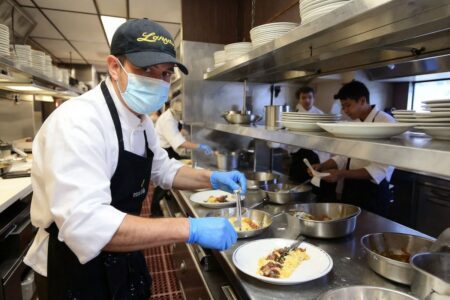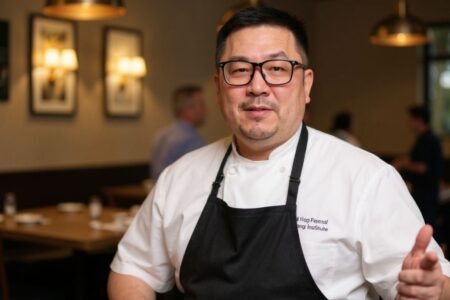
In Pixar’s “Ratatouille,” Auguste Gusteau famously said that “anyone can cook.”
In the real world, that line clearly needs to be taken with some salt. However, from people placing electric kettles on stovetops to boiling water and all the questionable things Gordon Ramsay has eaten throughout “Kitchen Nightmares,” salt might not be enough.
So here’s the question: is a culinary degree the secret ingredient to success as a chef?
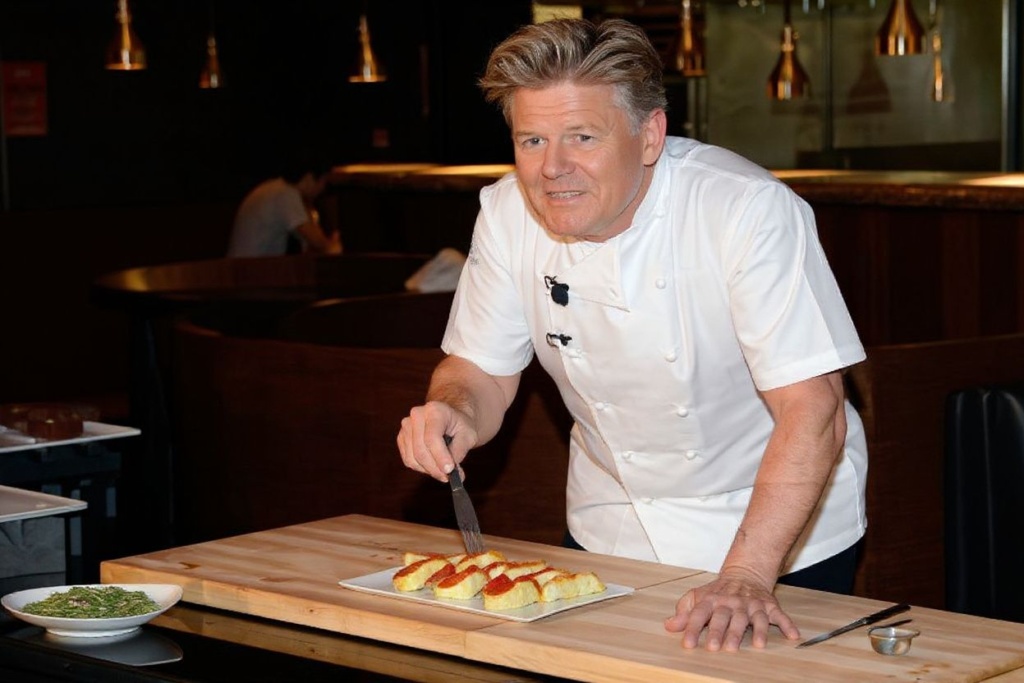 Gordon Ramsay has had no formal culinary education. Today, he holds eight Michelin stars and has been awarded a total of 17 over the years.
Gordon Ramsay has had no formal culinary education. Today, he holds eight Michelin stars and has been awarded a total of 17 over the years.
Do you really need a culinary degree?
While some of the world’s greatest chefs, like Ramsay, Marco Pierre White, and Heston Blumenthal, made it big without a degree in culinary arts, many others did just as well with one too.
Alton Brown, Anthony Bourdain, and Grant Achatz studied at top culinary institutions before earning their Michelin stars. So, the idea that chefs don’t need the proper education and training isn’t exactly true.
In reality, having a culinary degree could give you that competitive edge.
That said, while some employers prefer candidates with formal education, relevant work experience is acceptable, too.
Many chefs are self-taught, meaning they learn from experience through restaurant apprenticeships. Those with formal educations sometimes skip the apprenticeship route and work right after graduation.
In France, Switzerland, and Germany, formal culinary education is highly valued and often required for career advancement in high-end restaurants, especially Michelin-starred establishments.
However, in the US, the US Bureau of Labour Statistics reports that chefs and head cooks typically need a high school diploma, while some attend a community college or learn through apprenticeship programmes.
 Culinary programmes teach various cooking techniques, food safety practices, menu planning, and kitchen management skills.
Culinary programmes teach various cooking techniques, food safety practices, menu planning, and kitchen management skills.
Is experience more important?
Unsurprisingly, those with formal training generally tend to land better jobs and earn higher salaries compared to those without.
Getting the necessary education and training might also allow you to skip a few years of working as a kitchen assistant or sous chef.
Plus, many prestigious culinary schools, such as Le Cordon Bleu and the Culinary Institute of America (CIA), offer programmes that teach not just cooking techniques but also management, nutrition, and menu planning. Grant Achatz, who trained at the CIA, credits his education for helping him innovate and build strong restaurant brands.
Meanwhile, culinary graduate Tonya McMullen points out in her Quora response that attending a culinary school offers opportunities like studying abroad and learning diverse cuisines. However, she also warns that it comes with significant debt.
 A culinary degree sets you apart — not just in terms of cooking skills too.
A culinary degree sets you apart — not just in terms of cooking skills too.
Is the cost of culinary school worth it?
Tuition at top culinary institutions can range from US$20,000 to US$50,000 per year – and may not always guarantee success.
But here’s the thing: graduates have access to internships, mentorships, and job opportunities that can fast-track their careers. Many schools have direct connections to Michelin-starred restaurants and five-star hotels, making it easier to succeed.
If you want to stand out in the industry, having a culinary degree can open doors that pure experience alone might not.
The question is: Where should you study to make the most of your culinary education?
Some countries are famous for their rich food culture, world-class culinary schools, and excellent restaurants. From France’s legendary pastry schools to Italy’s pasta-perfecting institutions, choosing the right place to study can shape your future.
Here’s how:
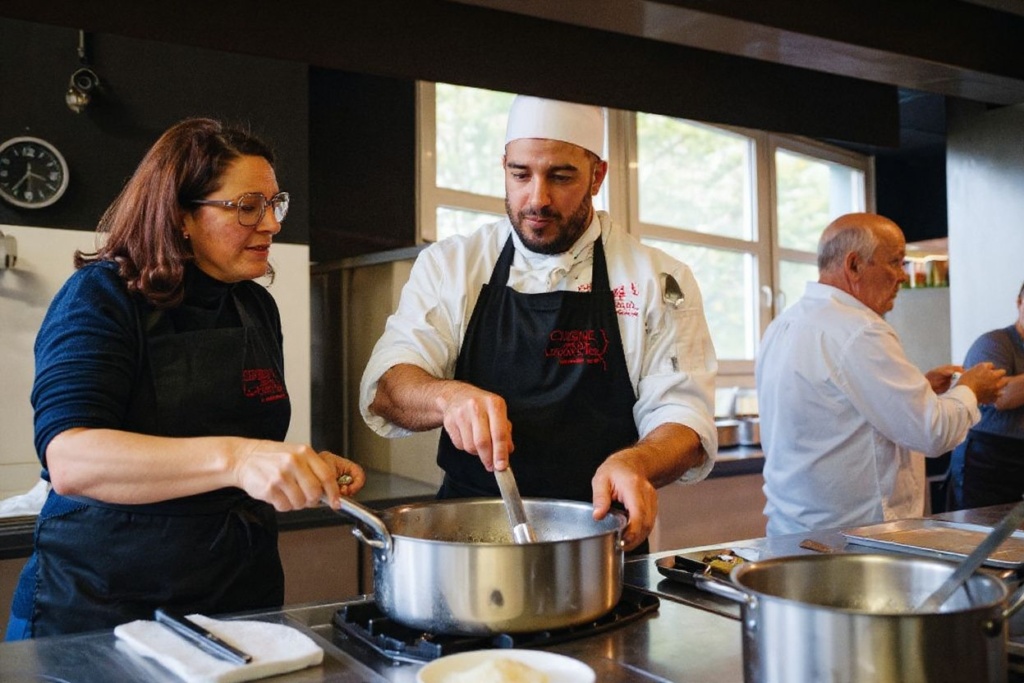 At culinary school, not only will you learn how to cook, but you’ll also learn about food science, nutrition, and food concepts.
At culinary school, not only will you learn how to cook, but you’ll also learn about food science, nutrition, and food concepts.
High-quality training
There’s little to no room for mistakes when you’re cooking, so getting the best training prepares you for every eventuality — big or small.
An in-depth training also helps you familiarise yourself with a professional kitchen setting, often known as chaotic, as depicted in “The Bears.” Even Genevieve Yam, a former chef at Michelin-starred restaurants, agrees.
Experienced instructors
An experienced instructor who knows how to provide feedback is key. After all, as much as cooking sometimes follows the heart, you’ll also need to follow the recipe.
And, no two kitchens are the same; you’ll need several approaches from different instructors to round out all your skills.
Industry connections
Even in the culinary arts scene, having industry networks is vital. These networks can lead to new job opportunities, collaborations with other chefs, and mentorships. These connections can give you a headstart in the industry, and you may end up at your dream restaurant.
Reputation and credibility
Attending the best schools to receive culinary degrees makes you more noteworthy. After all, it isn’t easy to enrol in some of these prestigious programmes, so you must have some skill, right? At least, that’s what the customer is made to believe — and you best make that belief accurate.
10 best countries for culinary degrees
1. Italy
Where better to study culinary arts than the land of pasta, pizza, and gelato. Here, food is more than a meal — it’s a way of life.
It comes as no surprise that US News and World Report ranks the country number one for the best food, so there is nowhere better to pursue your culinary degree than in Italy:
- ALMA – The International School of Italian Cuisine
- Apicius International School of Hospitality
- Italian Culinary Institute for Foreigners (ICIF)
2. France
The birthplace of fine dining, Michelin-starred restaurants, and some of the best chefs in history. If you want to master the art of cooking, why not choose France, the place that gave us croissants, coq au vin, and crème brûlée?
3. US
When it comes to studying culinary arts, the US serves up some of the best opportunities in the world.
The country boasts top-ranked culinary schools that provide world-class training, access to state-of-the-art kitchens, and mentorship from industry professionals.
- Culinary Institute of America (CIA)
- Johnson & Wales University – Culinary Arts Bachelor of Science
- Institute of Culinary Education
 Some popular Thai dishes include pad thai, green papaya salad, tom yum soup, and mango sticky rice.
Some popular Thai dishes include pad thai, green papaya salad, tom yum soup, and mango sticky rice.
4. Thailand
Thai cuisine is known for its balance of sweet, sour, salty, and spicy flavours, making it an excellent place to study culinary arts. Here, you can immerse yourself in its well-known food scene, from street food vendors to Michelin-starred restaurants.
Based on a survey done in 2023, Thailand ranks as the second-best destination for food tourism, with a score of 44%.
- Blue Elephant Cooking School Bangkok
- Le Cordon Bleu Dusit
- Bangkok University International – Culinary Arts and Design programme
5. South Korea
South Korean food, such as kimchi, bibimbap, bulgogi, Korean fried chicken, and tteokbokki, is gaining popularity worldwide, mainly due to the growing influence of Korean pop culture.
The country’s affordability compared to other top culinary destinations makes it a great choice for those looking for high-quality education without breaking the bank.
- Le Cordon Bleu-Sookmyung Academy
- Woosong University – Culinary Arts
- Sejong University – Global Culinary Art & Pastry
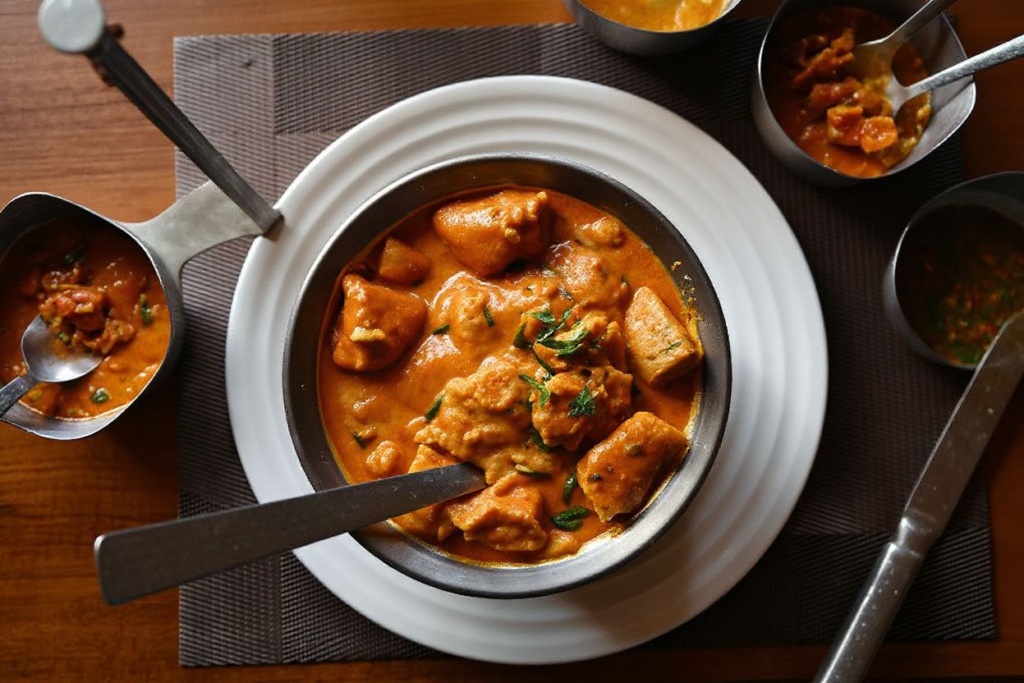 Indian cuisine is considered moderately difficult to master due to the wide variety of spices and techniques.
Indian cuisine is considered moderately difficult to master due to the wide variety of spices and techniques.
6. India
From North Indian and South Indian cuisines to Punjabi and Mughlai cuisines, India is a place to consider if you want to pursue a culinary degree.
Plus, culinary arts are considered a reputable course in the country. Better yet, you won’t just be learning about Indian cuisine, so prepare yourself because you’ll be in for the ride.
7. Japan
Home to one of the world’s most well-known cuisines, Japan is the best country for you to get culinary degrees.
After all, if there’s going to be one place to pick up unique techniques, precision, attention to detail, and the emphasis on fresh ingredients on a deeper level, it’s gotta be in the Land of the Rising Sun.
8. Spain
Ranked #2 by US News and World Report for countries with the best food, Spain is the best country to pursue a culinary degree.
Don’t believe us? We’ll let the tapas, paella, churros, crema catalana, and these highly regarded culinary schools convince you:
- Culinary Institute of Barcelona
- Joviat Culinary
- Sant Pol School of Hospitality and Culinary Management
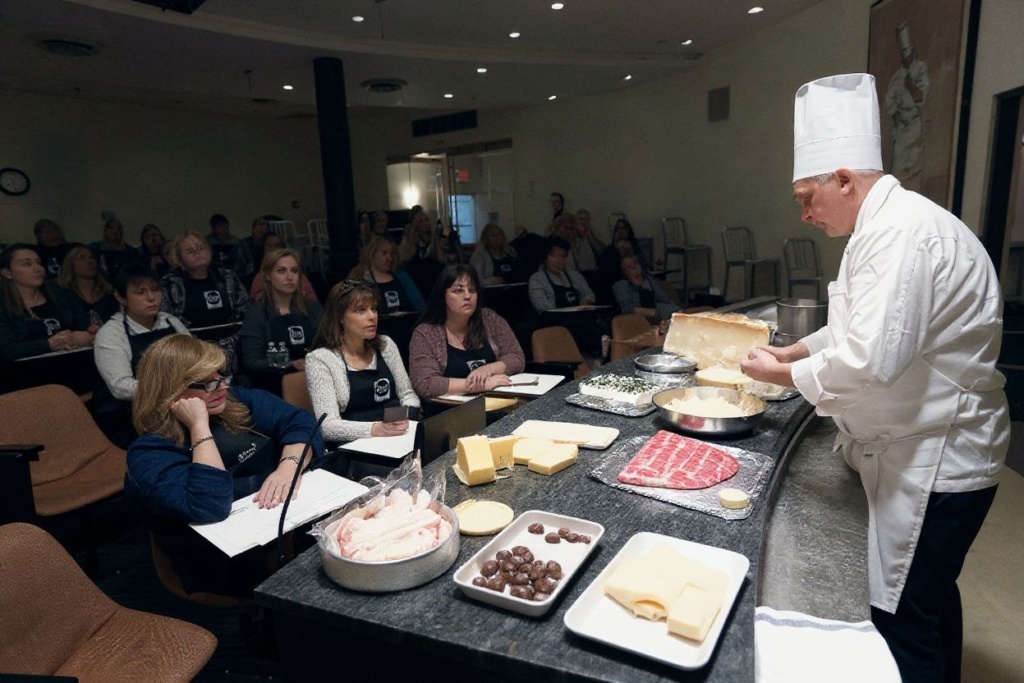 Swiss cuisine often features a lot of cheese, meats, breads, and chocolates. It’s even home to 700 types of cheese and 200 types of bread.
Swiss cuisine often features a lot of cheese, meats, breads, and chocolates. It’s even home to 700 types of cheese and 200 types of bread.
9. Switzerland
Known as the country with the best hospitality degrees, Switzerland is also the top choice for inspiring chefs to pursue their culinary degrees.
The Culinary Arts Academy Switzerland is among the best schools in the country and in the world. Others to check out include:
- Business and Hotel Management School
- EHL Hospitality Business School
- OUS Royal Academy of Economics and Technology in Switzerland
10. Mexico
Home to the beloved tacos, guacamole, and enchiladas, Mexico rounds out our list of best countries for a culinary degree.
A bonus for those with an appreciation for culture, Mexico’s rich culinary heritage is even recognised by UNESCO as an Intangible Cultural Heritage of Humanity.









